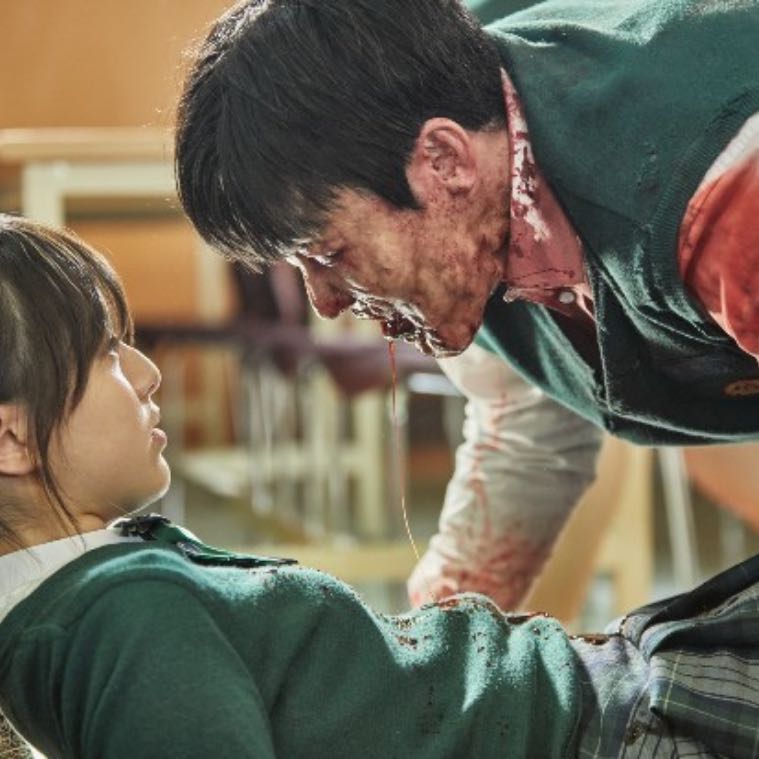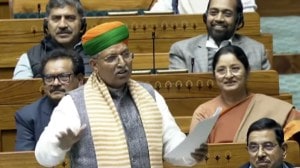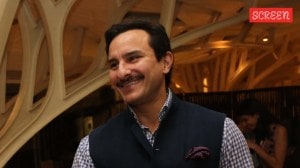Click here to follow Screen Digital on YouTube and stay updated with the latest from the world of cinema.
All Of Us Are Dead: No justice for the bullied victims in Netflix’s new zombie horror series
All Of Us Are Dead tried to show the descent of civilisation into chaos, packed with social and apocalyptic messaging, but some of it appeared rather garbled.
 All Of Us Are Dead is streaming on Netflix Photo: NetflixKR/Twitter)
All Of Us Are Dead is streaming on Netflix Photo: NetflixKR/Twitter)The zombie genre is beginning to wane, and the fatigue has clearly set in since the last few years. Netflix’s latest All Of Us Dead appeared to be that rare treat, given that the South Korean entertainment industry usually has a more creative approach to the horror genre. The series deals with stranded high-school teenagers, trying to survive a zombie smack-down. Filled with more gore and teeth-gnashing than some of us can handle, the show tackles several issues head-on, including stressful exams that send children into a spiral, bullying, teenage pregnancy, the ‘cold practicality’ of martial law, questionable moral dilemmas in the face of a catastrophe, crippling fears and adolescents trying to figure out their feelings for the opposite sex.
That’s a lot to handle, and there are 12 episodes of it. Ironically, more than zombies running wild in a city, what felt unrealistic is male teenagers suddenly evolved into heroic and mature saviours, ready to sacrifice everything for their crushes — including their lives, which means plunging into a fiery death. But it’s fine, I’ll take it. After living on a diet of Korean shows, you would be surprised to not find a male saviour complex in such a series.
The show basically is about youngsters cleaning up after a catastrophic mess created by grown-ups. The virus that causes the zombie outbreak is the handiwork of an adult who should have known better, and the mature elders refuse to save crying children from a zombie-ridden school, because they’re unsure of who is infected. In the end, the whole city of Hyosan is bombed, regardless of whether everyone has turned or not. The military officer responsible for the bombing kills himself, and you are expected to feel sorry for him, because he had to be ‘logical’ and ‘practical’ in such a situation. His troubles are over, but the children still remain. The world of adults is messy and chaotic and that’s what has brought about the destruction of the innocence among childhood.
Yet, all said and done, was this show more addictive, and impactful than other zombie shows? Well, partly. The acting was exemplary, especially the kids who played the zombies. Its bittersweet ending accepts that kids will have to clear up the mess that we have created. The teenage survivors find a family in each other, in a new and hostile world, imbued with symbolism, and heavy metaphors for the current global situation that we live in today. They no longer trust the world of fumbling adults anymore — adults, who were busy trying to put together quarantine plans to control a rabid infection, while pretty much leaving them to die.
Yet, despite some of its hard-hitting messaging, something was definitely troubling and unsettling about the premise. And the action, romance and blood could not hide the hairline cracks that became more prominent towards the end of the series. All Of Us Are Dead tried to show the descent of civilisation into chaos, packed with social and apocalyptic messaging, but some of it appeared rather garbled.
The creation of the zombie-mess is linked to bullying, which is fuelled by a desire to protect a loved one who can’t protect themselves. A father crafts this virus to help his son fight his tormentors, and it transforms rage into physical violence, and of course, it goes completely wrong, unleashing havoc upon the city. However, what was more disturbing, was that the series showed that the more people are bullied, the more sinister and psychotic monsters they become—till you can’t sympathise with them anymore.
Bullying is an exhaustingly painful aspect of life, and it usually begins at school. Innumerable films and television shows have tried to tackle it—some portraying it as a caricature, while others showed the bullied as learning to fight back—and a few, showed them as devolving into murderous delinquents, with whom you struggle to sympathise with. All Of Us Dead chose the last route.
In the first episode, we’re shown a boy being mercilessly assaulted (bullied seems pale, compared to what is happening) by his fellow peers on a rooftop scene. It is dark and rainy—in order to emphasise the grimness of the situation. He is tossed to the ground, and the bullies are terrified that they have committed a murder. But it turns out, that this boy is a monster—created by his father, who was tormented by his son’s fraying mental health. We learn later that the son would emerge battered from school everyday, and was too emotionally distraught to fight back, and was slowly dying from inside. His father creates the virus, which transforms fear into rage. In a series of dimly lit videos, we see him monitoring the effects on his son and wife, chained and bloodied at home. In a dazed manner, the father, who is also a science teacher at the same high school, has created flesh-eating zombies out of madness for losing his son. But as hell breaks loose, he can wax eloquent on ‘the strong and the weak’, and how the ‘weak’ finally fight back. However, he is redeemed because he sacrifices himself to zombies, in order to save a police officer.
In another scenario, a bullied girl becomes a victim of blackmail pornography, almost sexual assault. The film is outright disturbing, because she is held by several boys, and stripped. This incident takes place at the construction site next to the school. Suheyok charges in like a hero to save the bullied, but when the girl, who is severely traumatised, says that she will stay back, ‘because it will get worse tomorrow’, he nods, and leaves her behind. Suyeok has redeemed himself, as he was a bully in the past, we’re expected to root for him, as he is the hot and happening protagonist, now.
Yet, he lets the girl go, who is suffering deeply. The girl is harassed and bullied in class. The zombie outbreak occurs and she is bitten—but she is one of those few, who develop a curious condition, where they are neither human, nor zombie.
 (Photo: Netflix)
(Photo: Netflix)
However, the symbolic monster has overwhelmed her and she is ready to burn the school down. Almost suicidal, she loses all sense of herself, and grows more deranged as she has just one mission at first—to destroy all the phones that could have the video. With an expression of psychotic and terrifying relief, she breaks all the phones and then sets a part of the school on fire. She has done what she wanted to do—burn the hellhole down to the ground, as she revisits every scenario when she was bullied and taunted. She is later caged by the martial law enforcement, and by the end of the series, she is equated with an animal. There is no hope for the bullied, they’re just monsters now. It feels intensely triggering, because somewhere you hoped that she would join the group of survivors—provide more flesh to the story, rather than just be upheld as a plot device and a warning sign. Instead, she has no contribution to the main story after a point, and her predator is picking other battles.
This was particularly uncomfortable to watch, because the show forcefully tried to drive home the point that one couldn’t root for her, by showing her chomping on fish from an aquarium or killing a teacher who had once dismissed her bullying complaints. She did not get justice, and neither did her bullies quite get the comeuppance you would expect. Unintentionally albeit, the show reinforces stereotypes about bullying, especially for women, faced with sexual harassment—that there aren’t many options left for them.
The two cases of bullying that were put forth were disturbing, because you realised there would be no respite for them. So, did the show intend to just be a social commentary on how inept schools were in handling bullying? Or was it trying to show the apocalyptic effects of bullying—because that is equally problematic.
All Of Us Are Dead is an engrossing show for sure, but it tried too many things that didn’t get a satisfying finish—some plot elements seemed to be even baiting viewers and contrived, coming across as mawkishly manipulative.
- 01
- 02
- 03
- 04
- 05


































